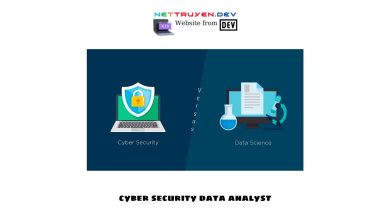Data Management for Nonprofits: Why It Matters

As a nonprofit organization, you are undoubtedly aware of the importance of data. Whether it’s tracking donations, analyzing program outcomes, or managing volunteer information, data is at the core of your operations. But managing this data effectively can be a daunting task, especially when you’re already juggling multiple responsibilities on a limited budget.
That’s where data management comes in. Data management refers to the process of collecting, organizing, storing, and utilizing data in a way that maximizes its value. By implementing effective data management practices, nonprofits can streamline their operations, track progress toward their goals, and make data-driven decisions that lead to greater impact.
But why is data management so important for nonprofits? For one, it allows organizations to better understand their programs and activities. By collecting and analyzing data on program outcomes, for example, nonprofits can identify areas where they’re succeeding and areas where they need to improve. This, in turn, allows them to make informed decisions about how to allocate resources and implement changes that will lead to greater impact.
Additionally, effective data management can help nonprofits build stronger relationships with their stakeholders. By keeping track of donor information, for example, nonprofits can tailor their communications and outreach efforts to better meet the needs and preferences of their supporters. This can lead to increased engagement, loyalty, and ultimately, more sustainable funding.
In short, data management is crucial for nonprofits that want to maximize their impact and build stronger, more sustainable organizations. In the following sections, we’ll explore the different types of data that nonprofits should manage, strategies for effective data management, and the challenges that organizations may face along the way.
The Importance of Data Management for Nonprofits

How Nonprofits Collect and Use Data
Nonprofits collect data in a variety of ways, including through online forms, surveys, and registration systems. This data can include donor information, volunteer hours, program outcomes, and more. Once collected, nonprofits typically use this data to track progress toward their goals, evaluate program effectiveness, and inform decision-making.
The Benefits of Effective Data Management
Effective data management can provide a range of benefits for nonprofits. For one, it can help organizations make better-informed decisions. By analyzing data on program outcomes, for example, nonprofits can identify areas where they’re succeeding and areas where they need to improve. This, in turn, allows them to adjust their strategies and allocate resources more effectively.
In addition, effective data management can help nonprofits build stronger relationships with their stakeholders. By keeping track of donor information, for example, nonprofits can tailor their communications and outreach efforts to better meet the needs and preferences of their supporters. This can lead to increased engagement, loyalty, and ultimately, more sustainable funding.
Examples of How Data Management Can Improve Nonprofit Operations
Here are just a few examples of how effective data management can improve nonprofit operations:
- A nonprofit that tracks volunteer hours can use this data to identify its most committed and reliable volunteers, and create a recognition program to thank them for their service.
- A nonprofit that collects data on program outcomes can use this information to make data-driven decisions about which programs to scale up and which to discontinue.
- A nonprofit that keeps track of donor information can use this data to personalize its communications and fundraising appeals, leading to higher engagement and donations.
In short, effective data management is crucial for nonprofits that want to maximize their impact and build stronger, more sustainable organizations. By collecting, organizing, and utilizing data in a strategic way, nonprofits can make better decisions, build stronger relationships with their stakeholders, and ultimately, achieve their mission more effectively.
Types of Data Nonprofits Should Manage

As a nonprofit organization, you likely collect a wide variety of data on your programs, donors, volunteers, and other stakeholders. But not all data is created equal, and it’s important to prioritize and manage the types of data that are most useful for your organization. Here are some of the key types of data that nonprofits should manage:
Program Data
Program data refers to information on the activities, services, and outcomes of your organization’s programs. This could include data on the number of clients served, the types of services provided, and the impact of your programs on your target population. By collecting and analyzing program data, nonprofits can better understand the effectiveness of their programs and make informed decisions about how to improve them.
Donor Data
Donor data includes information on your organization’s supporters, including their demographic information, giving history, and communication preferences. By managing this data effectively, nonprofits can tailor their fundraising and outreach efforts to better meet the needs and preferences of their donors. This can lead to increased engagement and loyalty, as well as more sustainable funding for your organization.
Volunteer Data
Volunteer data refers to information on the individuals who donate their time and skills to your organization. This could include data on volunteer hours, skills and interests, and feedback on their volunteer experience. By managing this data effectively, nonprofits can better engage and retain their volunteers, as well as identify opportunities for skills-based volunteering that can help advance their mission.
Financial Data
Financial data includes information on your organization’s revenues, expenses, and overall financial health. By managing this data effectively, nonprofits can ensure that they are operating in a financially sustainable manner and making the most of their resources. Additionally, financial data can be useful for reporting to donors and funders, as well as complying with legal and regulatory requirements.
In short, managing these types of data can help nonprofits make informed decisions, engage their supporters, and maximize their impact. By prioritizing and managing data effectively, nonprofits can build stronger, more sustainable organizations that are better equipped to advance their mission.
Challenges in Data Management for Nonprofits
As with any organizational process, data management comes with its fair share of challenges. Fortunately, many of these challenges can be addressed with the right strategies and tools. In this section, we’ll explore some of the most common challenges nonprofits face in managing data, and provide tips for overcoming them.
Overview of the Challenges Nonprofits Face in Managing Data
One of the biggest challenges nonprofits face in managing data is the sheer amount of information they need to collect and organize. From donor information to program outcomes to volunteer data, nonprofits are collecting data from a variety of sources and in a variety of formats. This can make it difficult to ensure data accuracy, consistency, and completeness.
Another challenge is ensuring data security and privacy. Nonprofits must take steps to protect the sensitive information they collect from donors, clients, and volunteers, while also ensuring that they’re in compliance with legal and ethical standards.
Finally, nonprofits may struggle with limited resources, both in terms of budget and staffing. Data management can be a time-consuming and complex process that requires specialized knowledge and expertise. Without adequate resources, nonprofits may find it difficult to implement effective data management strategies.
Explanation of How These Challenges Can Be Overcome
Despite these challenges, there are many strategies nonprofits can use to overcome them. One such strategy is to invest in data management software and tools. These tools can help nonprofits streamline their data collection and organization processes, while also ensuring data accuracy and completeness. Additionally, they can provide robust reporting and analysis capabilities, which can help nonprofits make data-driven decisions.
Another strategy is to ensure that staff members have the necessary skills and knowledge to manage data effectively. This may involve providing training and education on data management best practices, as well as hiring staff with specialized expertise in data management.
Finally, nonprofits can work to develop strong partnerships and collaborations with other organizations in their field. By sharing resources and expertise, nonprofits can overcome challenges related to limited resources and staffing, while also gaining access to new tools and technologies.
Examples of How Nonprofits Have Overcome Data Management Challenges
Many nonprofits have successfully overcome data management challenges by implementing these and other strategies. For example, GlobalGiving, a crowdfunding platform for nonprofits, uses a cloud-based data management system to collect and organize data from its various campaigns and initiatives. This has allowed the organization to streamline its data management processes and make more informed decisions about resource allocation.
Another example is the International Rescue Committee (IRC), which has partnered with technology companies to develop a data management tool specifically for humanitarian organizations. This tool allows the IRC and its partners to collect and analyze data in a way that promotes collaboration and transparency, while also ensuring data security and privacy.
By implementing these and other strategies, nonprofits can overcome data management challenges and unlock the full potential of their data.
Conclusion
In conclusion, data management is critical for the success of nonprofit organizations. By collecting, organizing, and utilizing data effectively, nonprofits can make data-driven decisions that lead to greater impact and build stronger, more sustainable organizations.
To be effective at data management, nonprofits should prioritize building a strong foundation of data, ensuring that data is accurate, complete, and up-to-date. They should also implement strategies for effective data management, such as using a centralized database, establishing clear data ownership and responsibilities, and investing in staff training and development.
While there are certainly challenges to effective data management, including limited resources and concerns around data privacy and security, nonprofits that prioritize data management will ultimately be better positioned to achieve their goals and create lasting change.
So, if you’re a nonprofit organization looking to maximize your impact and build a stronger, more sustainable organization, don’t overlook the importance of data management. By implementing best practices, investing in staff training and development, and building a strong foundation of data, you can take your organization to the next level and create meaningful change in your community.
Conclusion: So above is the Data Management for Nonprofits: Why It Matters article. Hopefully with this article you can help you in life, always follow and read our good articles on the website: nettruyen.dev



